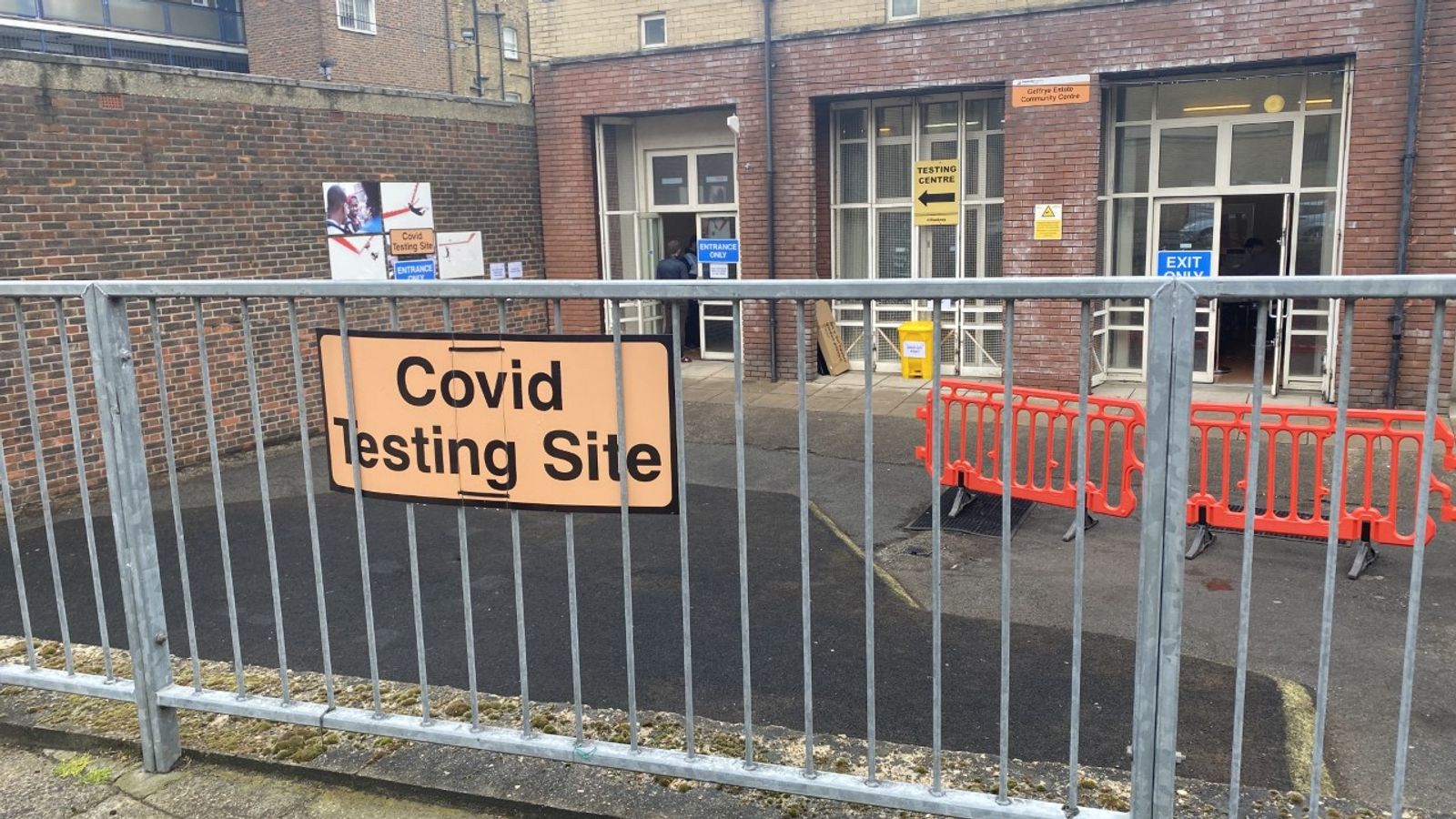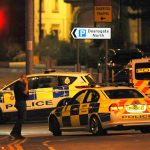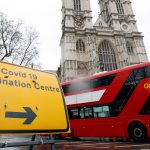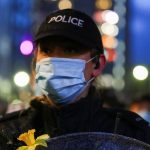Surge testing to tackle an outbreak of the Indian variant of coronavirus is under way in parts of England.
Extra resources to ensure widespread community testing in targeted locations within east London – including Shoreditch and Dalston – have been put in place after the South African variant was also found.
The infections occurred in three workplaces in the area, Hackney Council said.
Live coronavirus updates from the UK and around the world
Sky News watched in Shoreditch on Saturday morning as people started to trickle in to the centre there.
Sky’s Jemima Walker said: “Most people say they are not worried, they woke up this morning, saw the text message and came to the testing centre.”
Surge testing to tackle the Indian variant is also under way in several other parts of the country including areas in Sefton, Merseyside, Bolton, Greater Manchester, and Blackburn, Lancashire.
Lockdown easing a ‘real worry’, doctors warn – as minister says it’s ‘the safe thing to do’
Public Health England data shows a rise in cases of the Indian variant of concern from 520 to 1,313 in the UK, but these figures are said to be at least a week out of date.
About 400 of those are believed to have been in London.
A statement from the London Borough of Hackney said: “The council is now asking everyone who works or lives in these affected areas to get a test to help stop the spread of these variants in the community.
“These areas are around Old Street and Great Eastern Street, in Shoreditch; and parts of Dalston town centre, around Dalston Lane and Kingsland High Street.”
Boris Johnson warned on Friday the variant could cause “serious disruption” to plans to ease the lockdown and may delay the planned ending of all legal restrictions on 21 June.
The Scientific Advisory Group for Emergencies (SAGE) determined there was a “realistic possibility” the strain was 50% more transmissible than the one that emerged in Kent.
If the enhanced transmissibility of the variant is confirmed, experts said moving to step three could “lead to a substantial resurgence of hospitalisations” that is “similar to, or larger than, previous peaks”.
Please use Chrome browser for a more accessible video player
To limit the spread of the variant, people aged over 50 and the clinically vulnerable have been told to come for their second dose of a COVID vaccine sooner than they expected.
One of the foremost experts on variants, Professor Sharon Peacock, Director of COG-UK, said on Saturday morning: “There are hotspots in London and the North West, but the variant is known to be present in numerous locations across the country.
Please use Chrome browser for a more accessible video player
“An important question is how far B.1.617.2 has spread in England. Sequence data takes a week or more to become available but there are other ways to track variants.
Please use Chrome browser for a more accessible video player
“All of this points to B.1.617.2 outcompeting other variants. Control measures through public health actions (testing, contact tracing, isolation) are very important since they slow the spread of even highly transmissible variants and buy us time.
“We don’t know enough yet about B.1.617.2 and disease severity. There is no evidence that B.1.617.2 causes more severe disease, but more data are needed to start to get a handle on this.”






















